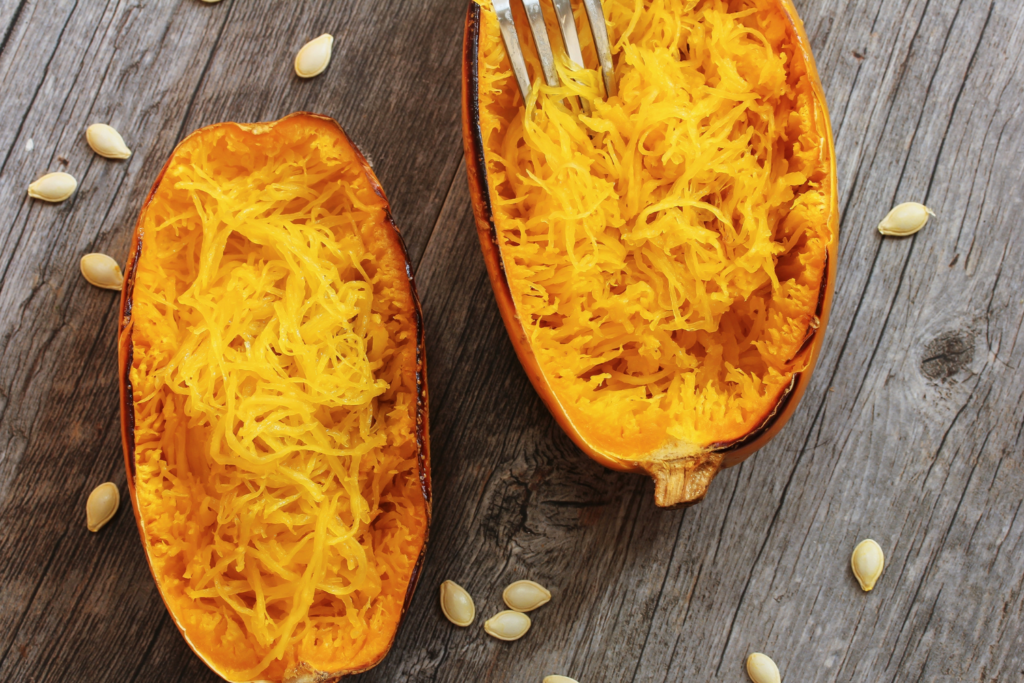November Food of the Month – Winter Squash

Winter squash can be intimidating because of their hard exterior, but break them open, and you will find vast nutritional benefit. Winter squash is a member of the cucurbitaceae family which also includes cucumber, melons, and zucchini. Native North Americans historically planted winter squash as “Three Sisters” along with pole beans and corn, as these three, when planted together, help each other thrive and survive. Squash shades the ground to reduce weeds, beans fix nitrogen to satisfy nitrogen-hungry corn, and corn provides a strong, climbing structure for the beans.
Storage Tips: Select squash that are firm and dull rather than soft or shiny. Store in cool, dark location such as a kitchen cupboard, but do not store in the refrigerator!
FYI: Use a fork to scrape spaghetti squash out of its shell once roasted to make a lower carb pasta substitute. You will be surprised how easy this is.
Nutrition: Winter squash are low in calories (45-90 calories per cup). They are an ideal complex carbohydrate with far fewer carbs than sweet potatoes (16 grams in a cup vs. 27 grams!). Squash are also an excellent source of Vitamin A, in the form of beta carotene, to support skin health, a great source of dietary fiber, plus magnesium.
Fun Facts: According to the Guinness Book of World Records, the heaviest recorded pumpkin was grown in Belgium in 2016 and weighed in at 2,624 pounds! Not to be outdone, the heaviest pumpkin at Skagit County’s Annual Giant Pumpkin Weigh-off set a new record in 2020 at 1,924 pounds.
Cooking: Technically, all squash skin is edible, however, the older it is, the tougher the skin. To reduce the work and risk of peeling these vegetables, first microwave whole squash for a few minutes to soften. Not all squash are suitable for eating. Avoid cooking carving pumpkins as they are stringy and watery. Good choices for culinary pumpkin are the sugar pie or cheese varietals. Butternut and acorn are the most popular culinary squash in the US, but there are dozens available in the general market. Delicata is a great choice for its small size and edible rind, while kabocha has the texture of pumpkin and is wonderful in soup and curry.
Click here for a delicious three-ingredient spaghetti squash dish that will warm you up on the coldest of winter days.
